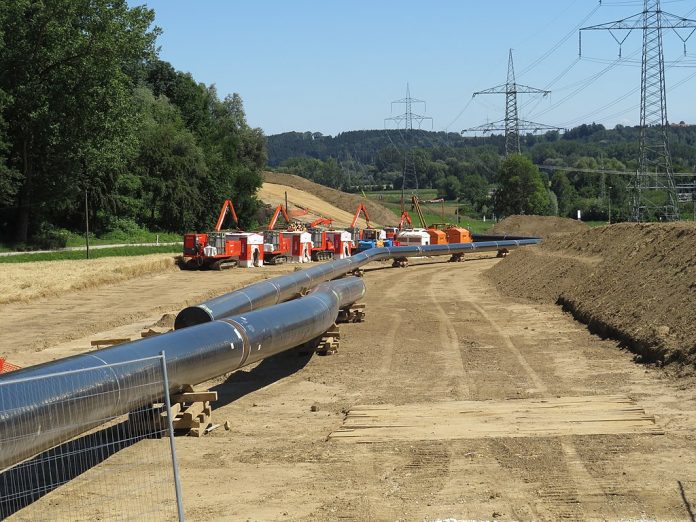Since the inception of modern international relations, natural resources have been of noteworthy significance to the power structure of the international system of states. Although every state would prefer to have easy access to natural resources, states often have to compensate their lack of resources with a dependency of supply on other actors. The International Energy Agency (IEA) adopts the simplest definition of energy security, defining it as ‘the uninterrupted availability of energy sources at an affordable price’. Russia has constantly been the biggest supplier of the European Union’s energy demands such that channels along which natural gas is supplied to the EU energy markets yield dependence from the Russian Federation. Such an exclusive dependence results in a threat to the EU’s energy security.
The Energy Security discussions in the Union have been largely conditioned by the two major gas crises faced by the player in 2006 and 2009, owing to the Russian cut off of gas supply through Ukrainian pipelines. This has led to subsequent distrust and suspicion in their mutual energy relations, which has further aggravated the Russian challenge to Europe. With the increase in likelihood that Russia will dominate the EU’s energy supply and would use the “energy weapon” to influence the political behavior of the EU, the Union has begun to view Russia’s narrative as a realist and unreliable energy supplier.
A major response to Europe’s over-reliance on Russian supplies is the Southern Strategy or the Southern Corridor to prospectively import gas from the Caspian region and Central Asia. North Africa, particularly the regions of Libya and Egypt, also pose as a credible alternative to Russian natural gas supplies. Further, Liquefied Natural Gas (LNG) is an additional alternative. In this context, it is interesting to note that according to a report of the European Commision, the EU imported its highest ever volume of LNG at 108 billion cubic meters in 2019, constituting 27 percent of its total gas imports and 22 percent of its gas consumption last year. In addition to Russia, Qatar and the USA were the top LNG suppliers to Europe in 2019, successfully marking the EU’s move towards diversification.
The Union has also been focusing on energy transformation and drastically reducing its CO2 emissions, primarily by replacing fossil fuels with cleaner sources of energy. An ambitious project by the Union includes the EU Green Deal announced by the European Commission in December 2019. This deal follows the path of EU climate-energy packages and is consistent with the iconic goal of carbon neutrality by 2050. According to the European Union Institute of Security Studies, Europe’s import dependency on fossil fuels is expected to rise exponentially such that 80 percent of consumption by 2030 would comprise of imported gas, owing to declining domestic productions in most member states. Apart from climate change concerns, the Union’s shift to renewable sources of energy would shift the $445 billion expenditure towards domestic producers and employment at home, as opposed to previously being used on energy imports. EU could assume global leadership by finding economically and environmentally viable ways to replace fossil fuels, such that other major importers of oil and gas, such as China, India, etc., could follow suit.
Leading global climate and energy indicate a metamorphosis of the energy sector in the post-Covid-19 realm. The coronavirus pandemic is expected to accelerate the shift from expenditure on fossil fuels towards investment in renewable energy. A struggling oil and gas industry will lead to fewer jobs in that field, while changes in commuting, air travel and manufacturing may encourage businesses and governments to reconsider air pollution and traffic congestion problems. Variable to economic recovery of governments across the globe, a recovery for oil, gas and coal sector could prove to be challenging after this recession, given how much cheaper and accessible renewable energy has become. A smoother transition to renewable would be a boon to the energy security of the continent.
The EU aims to diversify its resources and supply routes as a part of its Energy Diplomacy. The road ahead for EU explores the possibility of EU as a ‘regulatory actor’ where it remains committed to a liberal approach in international political economy, but at the same time promotes regulation, in order to enhance its own powers at the expense of others, notably Russia. This can be achieved through an EU-wide energy Union, which was first proposed by the European Commission in 2015, which underlines EU’s access to secure, affordable and climate-friendly energy. At the transnational level, policymakers of member states have already been pursuing measures such as promoting a single energy market and diversification which is essential to help minimize the threat and impact of supply disruptions. In addition to policy tools, the growth of renewables and LNG industries could potentially reduce dependence on Russian gas. Thus, the need of the hour for EU remains to adopt a heterogenous approach to energy security in order to achieve the EU’s ambition to attain sustainable as well as affordable energy for every European.
The views and opinions expressed in this article are those of the author.

Shreya Sinha is a Doctoral Candidate at the Centre for European Studies, School of International Studies, Jawaharlal Nehru University. She holds her M.Phil. and MA degrees from the same school at JNU. She holds her Bachelor’s degree in Political Science and History disciplines from St. Stephen’s College, Delhi University. She has also been awarded the Junior Research Fellowship in Political Science by the University Grants Commission.


